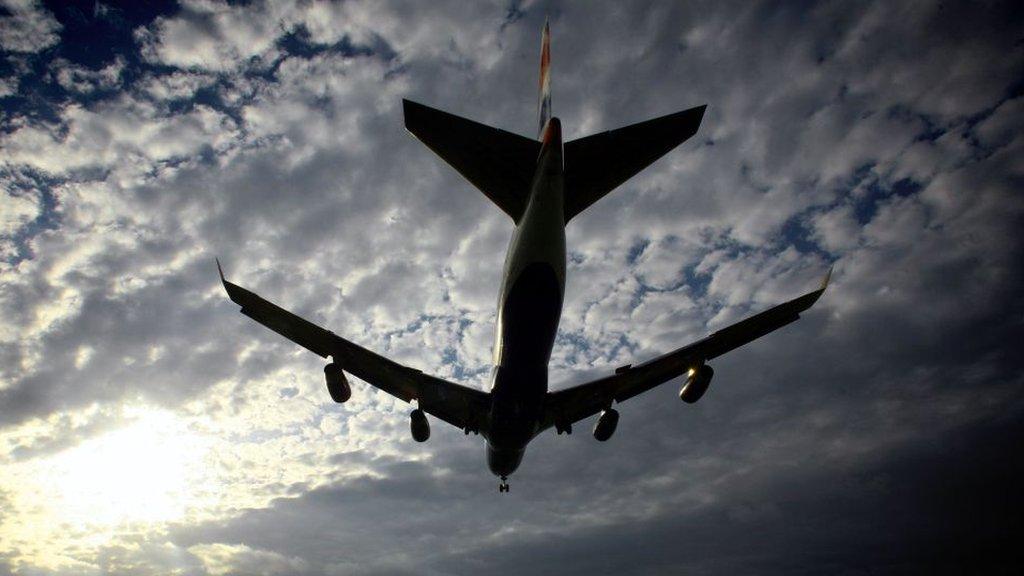BA cabin crew virus fears after long-haul flights
- Published
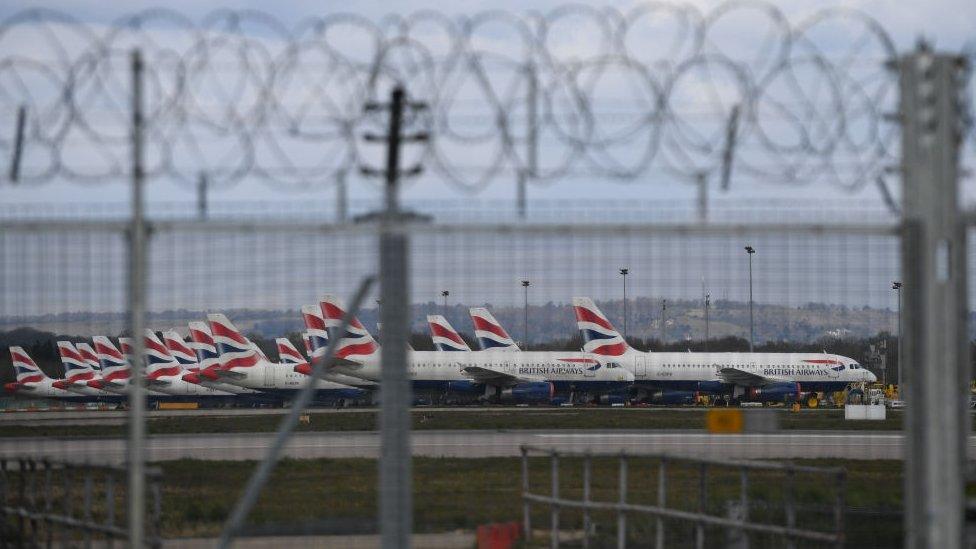
Airlines across the world have grounded aircraft as passenger numbers collapse
A number of British Airways cabin crew fear they may have contracted the coronavirus after operating long-haul flights over the past two weeks.
Unions are calling on airlines to do more to minimise the exposure of staff.
But BA pilots and cabin crew say the airline was slow to take action to protect them from the virus.
BA said it has taken steps to reduce contact between customers and crew, adding that personal protective gear, like masks and gloves, was available.
However, one pilot told the BBC that equipment was not always accessible and that staff sometimes travelled "shoulder-to-shoulder" on buses at airports.
Despite slashing its flight schedule amid travel restrictions, BA is still operating some flights to destinations such as New York, the epicentre of the coronavirus outbreak in the US, where more than 6,000 people have died across the country.
This week the airline also helped repatriate hundreds of British nationals from Peru. Along with other UK-based airlines, BA is now working with the Foreign Office to bring back people who are stuck abroad.
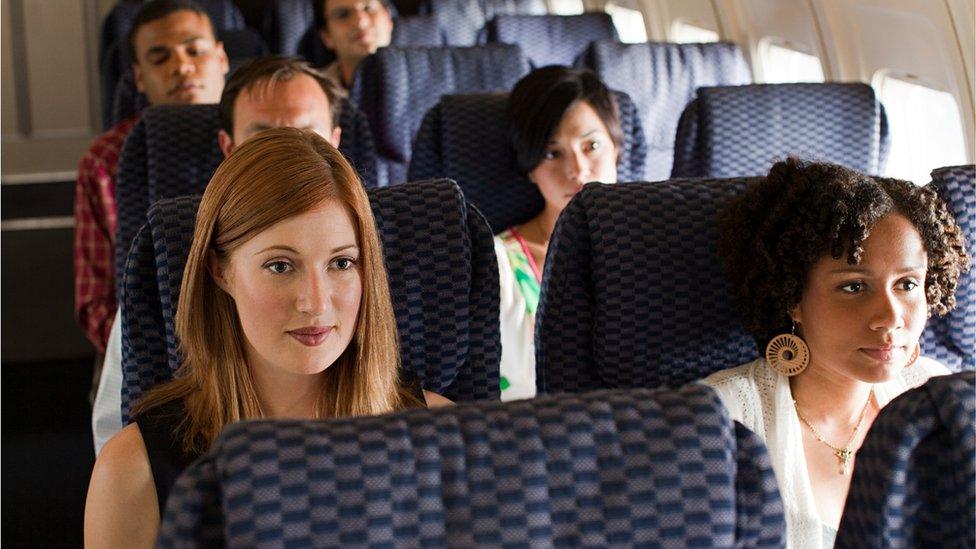
Public Health England has suggested that every other seat on an aircraft should now be left empty so that social distancing is possible.
BA said it was "keeping vital links open" and its teams were "doing an amazing job".
The in-flight service on flights operated by BA and its rivals has been greatly reduced to minimise person-to-person contact. Passengers on long-haul flights are now handed a packed lunch and a drink when they board the plane.
Although some long-haul routes which are still operating can be relatively empty, social distancing hasn't been possible on some domestic and repatriation flights. One pilot operating a domestic flight with a UK-based airline out of Manchester this week refused to take off until he was given a bigger aircraft.
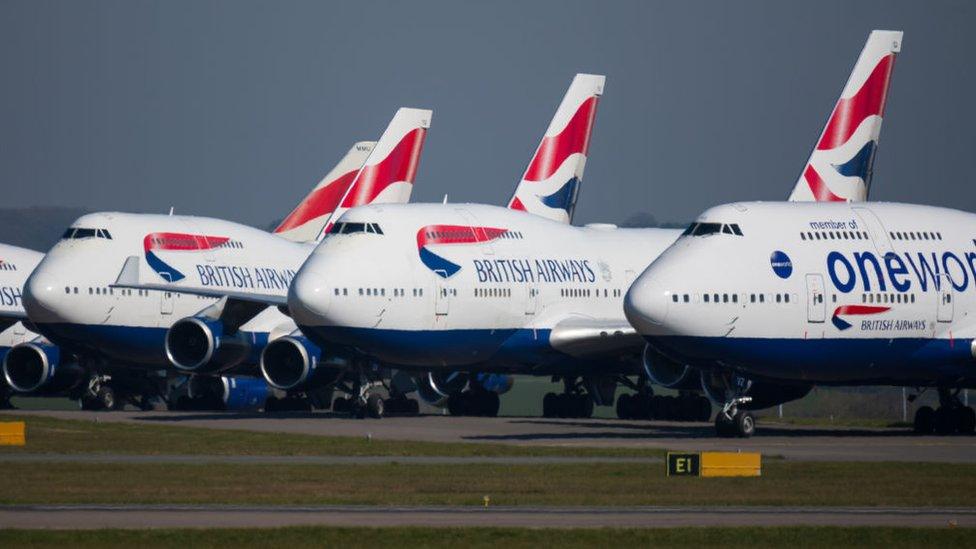
And BBC News has learnt that Public Health England has suggested that every other seat on an aircraft should now be left empty so that social distancing is possible.
In an email sent to the pilots' union Balpa, Public Health England said "seating passengers separated by one seat either side would be a sensible approach."
However, this suggestion would be incredibly costly for any repatriation flights organised by the Foreign Office and might not be feasible for airlines who have had their business wither in recent weeks.
'Very slow'
Easyjet, which is also expected to run some of the government's repatriation flights, said it has also been implementing practises to minimise contact like ensuring that its staff don't touch passengers' travel documents when they board.
Virgin Atlantic said it had put "meticulous" cleaning processes in place and created "isolation areas" on its flights for passengers showing symptoms of the virus.
A BA pilot told the BBC that the airline had been "very slow" to put in measures to protect staff.
"I know the company is struggling but up until the last three or four days there has been a complete disregard for our health and safety."
The pilot, who flies long-haul routes, acknowledged that this week there were signs that issues were being addressed.
He said pilots recently received an email stating that bigger buses would be used to transport staff at airports so that they can observe social-distancing advice. At Heathrow employees have also been given access to car parks so that they can avoid getting on buses.
Another BA staff member who contracted the virus said they did have access to a "flimsy mask", however protective equipment was not always available. BA insisted that the welfare of its staff was paramount.

EASY STEPS: What can I do?
CONTAINMENT: What it means to self-isolate
MAPS AND CHARTS: Visual guide to the outbreak
VIDEO: The 20-second hand wash

Brian Strutton from the pilot's union Balpa said it was essential that staff involved in repatriation efforts were provided with protective equipment.
"We're hearing pilots saying they're worried about flying, for their own safety and their family's safety," he said.
"Yet there has been no discussion or consultation with us to provide assurance."
Balpa has written to the Department for Transport to express its concerns and it has issued its own safety guidance to pilots. The department didn't immediately respond to a request for comment.
Crews have also been notified that they are now classified as "critical workers" and were told that if they were rostered they would be expected to turn-up to work.
However, BA insisted that repatriation flights would only be operated by staff who volunteer. Easyjet also said that its rescue flights for stranded British nationals have always been operated by staff who have volunteered.
The Unite union, which represents cabin crew, said the guidance from aviation regulators and other government bodies over keeping airline crews safe was inconsistent.
Unite's aviation officer Oliver Richardson called on the industry to urgently agree a set of protocols "to minimise the risk to those working and flying".
- Published13 March 2020
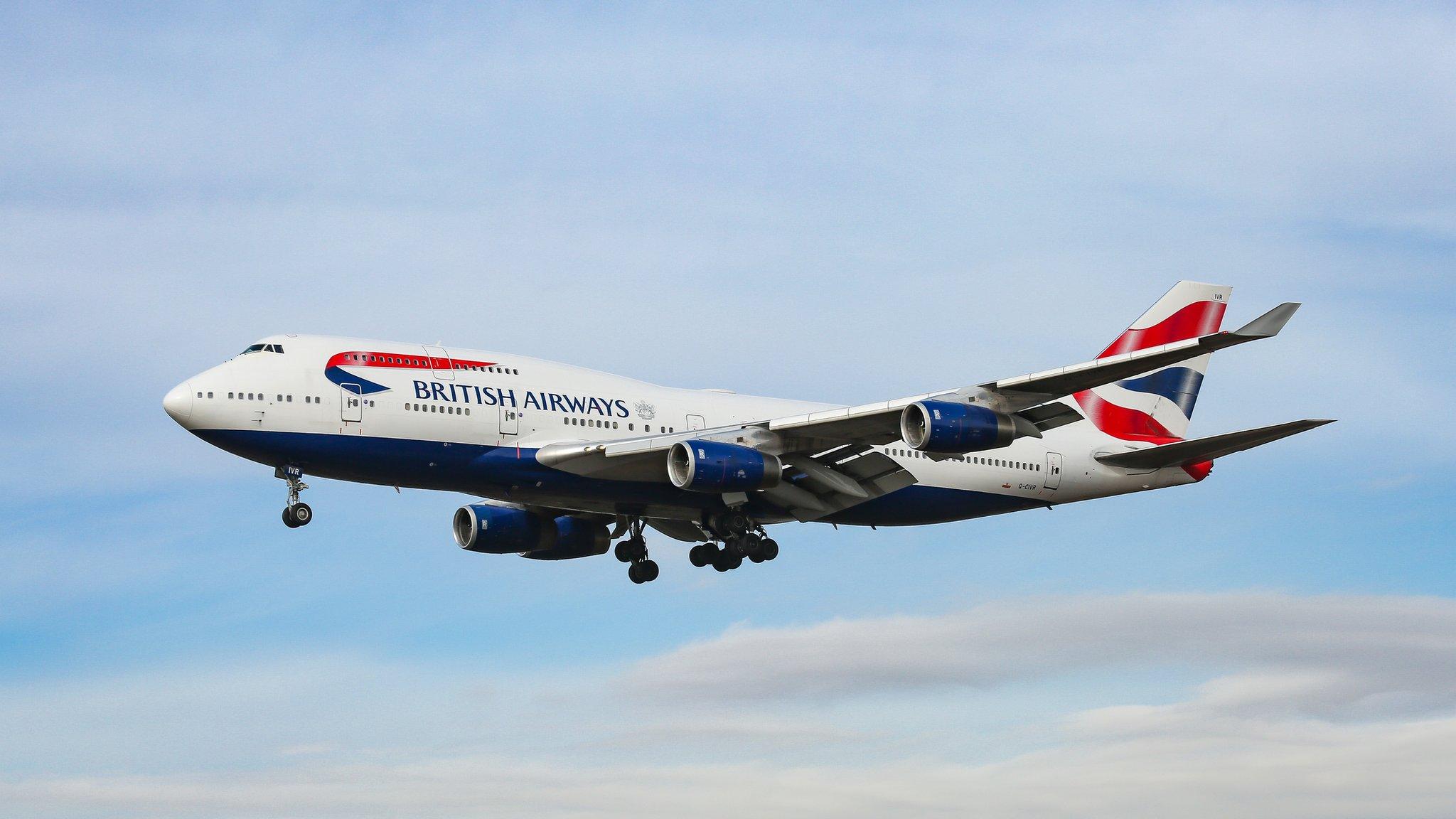
- Published30 March 2020
